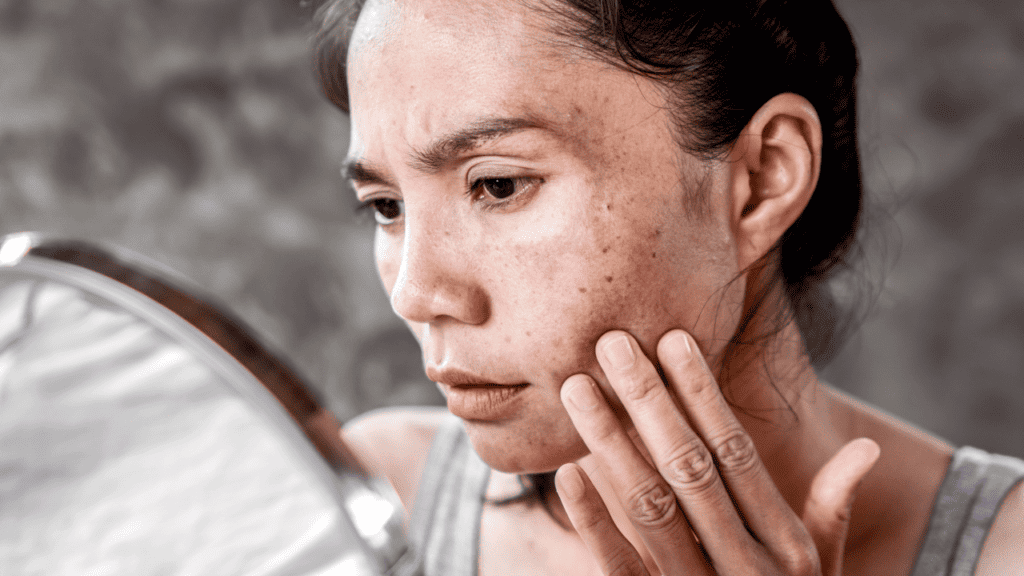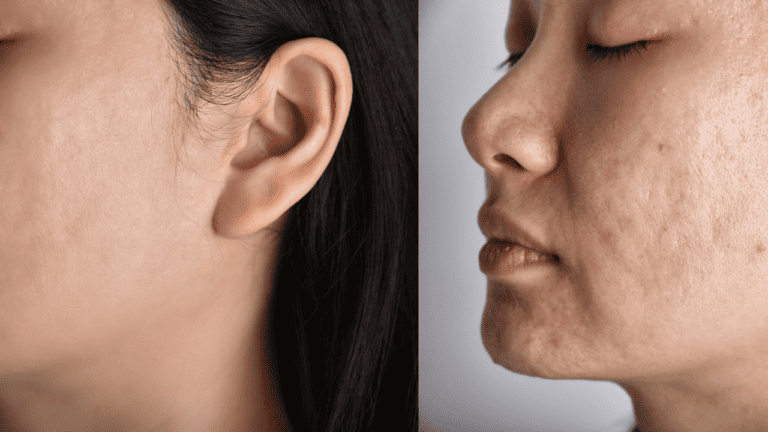Pets can have a significant impact on our lives, including our skin health. While some pet owners may experience negative effects, such as allergies or zoonotic skin conditions, others may benefit from the presence of pets in their lives. Understanding the impact of pets on skin health can help individuals make informed decisions about pet ownership and care.

Pet allergens can have a negative impact on skin health, causing symptoms such as itching, redness, and hives. However, research suggests that exposure to pets at an early age may actually reduce the risk of developing allergies and asthma later in life. Additionally, pets can have a positive impact on mental health, which can in turn have a positive impact on skin health. Stress and anxiety can exacerbate certain skin conditions, so reducing stress through pet ownership may be beneficial for those with sensitive skin.
Key Takeaways
- Pet allergens can negatively impact skin health, but exposure to pets at an early age may reduce the risk of developing allergies and asthma later in life.
- Pets can have a positive impact on mental health, which can in turn have a positive impact on skin health.
- Choosing the right pet for sensitive skin and taking steps to reduce exposure to pet allergens can help minimize negative effects.
Impact of Pet Allergens on Skin

Pets are a great source of companionship and joy for many people. However, pets can also be a source of skin allergies that can cause discomfort and irritation. In this section, we will explore the impact of pet allergens on the skin and ways to manage these allergies.
Identifying Common Allergens
Common pet allergens include pet dander, fur, hair, saliva, and urine. Pet dander is a common allergen that is made up of tiny flakes of skin shed by pets. Fur and hair can also be allergens, especially if pets shed excessively. Saliva and urine can also cause allergic reactions in some people.
Symptoms of Pet Allergies
Pet allergies can cause a range of symptoms, including itching, rash, and hives. In some cases, pet allergies can also lead to more severe symptoms, such as eczema and asthma. When a person is exposed to a pet allergen, their immune system produces antibodies that trigger an allergic reaction. The severity of the reaction can vary from person to person and can depend on the amount of exposure.
Managing Allergies and Skin Health
If a person is experiencing symptoms of pet allergies, it is important to seek medical advice. A doctor may prescribe medication, such as antihistamines or corticosteroids, to manage symptoms. In addition to medication, there are also steps that can be taken to prevent exposure to pet allergens. These include:
- Keeping pets out of the bedroom
- Washing pets regularly
- Vacuuming and dusting regularly
- Using air purifiers
- Removing carpets and other soft furnishings that can trap pet allergens
In addition to managing pet allergies, it is also important to take care of the skin. Keeping the skin moisturized can help to prevent itching and dryness. Avoiding harsh soaps and detergents can also help to prevent skin irritation. If a person is experiencing symptoms of pet allergies, they should talk to their doctor about the best ways to manage their symptoms and maintain healthy skin.
In summary, pet allergens can cause a range of symptoms on the skin, including itching, rash, and hives. Identifying common allergens and managing exposure can help to prevent symptoms. Seeking medical advice is important for managing pet allergies and maintaining healthy skin.
Beneficial Effects of Pets on Human Skin

Pets are known to have numerous benefits on the mental and physical health of humans. Recent studies have shown that pets can also have a positive impact on human skin. In this section, we will discuss the beneficial effects of pets on human skin, including how pets can reduce stress levels and improve immune responses.
Pets and Reduced Stress Levels
Pets, especially dogs and cats, are known to be great stress relievers. The presence of pets can help reduce cortisol levels, which is a hormone associated with stress. Studies have shown that petting a dog or cat can lower blood pressure and heart rate, leading to a more relaxed state of mind. This reduction in stress levels can have a positive impact on the skin, as stress is known to cause inflammation and other skin issues.
Improved Immune Responses
Pets can also help improve the immune system of their owners. Studies have shown that children who grow up with pets have a lower risk of developing allergies and asthma. This is because exposure to pets at a young age can help build a stronger immune system. Pets can also help reduce inflammation in the body, which is associated with a variety of health issues, including skin problems.
In addition to reducing stress levels and improving immune responses, pets can also provide companionship, which can have a positive impact on mental health. Overall, the benefits of pets on human health, including skin health, cannot be overstated.
Risks of Zoonotic Skin Conditions

Pets can be a source of various zoonotic skin diseases that can be transmitted to humans. These diseases can range from mild skin irritations to severe infections. It is important to be aware of the risks associated with pet ownership and take necessary precautions to prevent these diseases.
Common Zoonotic Skin Diseases
Some common zoonotic skin diseases that can be transmitted from pets to humans include ringworm, mites, creeping eruption, and ticks. Ringworm is a fungal infection that causes a circular rash on the skin. Mites can cause scabies, a skin condition that causes intense itching and a rash. Creeping eruption is a skin infection caused by hookworm larvae. Ticks can transmit Lyme disease, a bacterial infection that can cause a rash, fever, and joint pain.
Prevention and Treatment Strategies
There are several strategies that can be employed to prevent the transmission of zoonotic skin diseases. First, it is important to practice good hygiene, such as washing hands after handling pets and cleaning their living areas regularly. Second, it is important to keep pets healthy by providing them with regular veterinary care, including vaccinations and parasite prevention. Third, it is important to be aware of the risk factors associated with zoonotic skin diseases, such as exposure to contaminated soil or water.
If a person does develop a zoonotic skin disease, prompt treatment is essential. Treatment may include topical or oral medications, depending on the severity of the disease. In some cases, hospitalization may be necessary.
In conclusion, pets can be a source of various zoonotic skin diseases that can be transmitted to humans. However, by taking necessary precautions and seeking prompt treatment when necessary, the risk of transmission can be minimized.
Choosing the Right Pet for Sensitive Skin

Pets are a great source of companionship and joy, but for those with sensitive skin, choosing the right pet can be a challenge. Here are some tips to help you choose a pet that is less likely to cause skin irritation.
Hypoallergenic Pet Options
Hypoallergenic pets are animals that are less likely to cause an allergic reaction in people with sensitive skin. While no pet is completely hypoallergenic, some breeds of dogs and cats are known to be less allergenic than others. These breeds produce fewer allergens and shed less, which can help reduce the risk of skin irritation.
Some hypoallergenic dog breeds include poodles, bichon frises, and schnauzers. For cats, the Siberian, Balinese, and Sphynx breeds are known to be less allergenic. Other hypoallergenic pet options include guinea pigs, fish, reptiles, amphibians, rodents, and rabbits.
Considerations for Families with Children
Families with children should take extra care when choosing a pet for sensitive skin. Children are more likely to develop skin irritations from pets due to their delicate skin. It is important to choose a pet that is gentle and easy to handle, especially if the child is young.
Experts recommend that families with young children avoid certain pets, such as reptiles and amphibians, as they can carry harmful bacteria that can cause skin infections. Dogs and cats are generally safe choices for families with children, but it is important to choose a breed that is known to be gentle and good with kids.
In addition to choosing the right pet, families with children should also take steps to reduce the risk of skin irritation. Regular bathing and grooming can help reduce the amount of allergens and dander that pets produce. It is also important to keep the home clean and free of pet hair and dust. If a child does develop a skin irritation, it is important to consult a doctor for advice on how to treat it.
Overall, choosing the right pet for sensitive skin requires careful consideration and research. By choosing a hypoallergenic pet and taking steps to reduce the risk of skin irritation, pet owners can enjoy the benefits of pet ownership without the discomfort of skin irritation.
Frequently Asked Questions
What are common skin reactions adults may experience from dog allergies?
Dog allergies are relatively common, affecting up to 30% of people with allergies. When someone with a dog allergy comes into contact with dog dander, saliva, or urine, their immune system may overreact and release histamine, leading to a range of symptoms, including skin reactions. Common skin reactions from dog allergies include hives, rashes, and eczema. These reactions can occur anywhere on the body but are most commonly found on the face, neck, and upper chest.
Is there a correlation between dog ownership and the development of eczema in humans?
Research suggests that there may be a correlation between dog ownership and the development of eczema in humans, particularly in children. One study found that children who lived with dogs were less likely to develop eczema by the age of four than those who did not. However, another study found that exposure to dog allergens in the first year of life was associated with an increased risk of eczema at age four. The relationship between dog ownership and eczema is complex and may depend on a range of factors, including genetics, environmental factors, and timing of exposure.
What steps can I take if I find myself suddenly allergic to my dog?
If you find yourself suddenly allergic to your dog, there are several steps you can take to manage your symptoms. The first step is to visit an allergist for testing to confirm the allergy. Once confirmed, the allergist may recommend a range of treatments, including over-the-counter or prescription medications, immunotherapy, or lifestyle changes. It is also important to reduce your exposure to dog allergens by regularly bathing your dog, keeping your home clean and well-ventilated, and avoiding areas where your dog spends a lot of time. If necessary, you may need to rehome your dog to manage your allergy symptoms.





